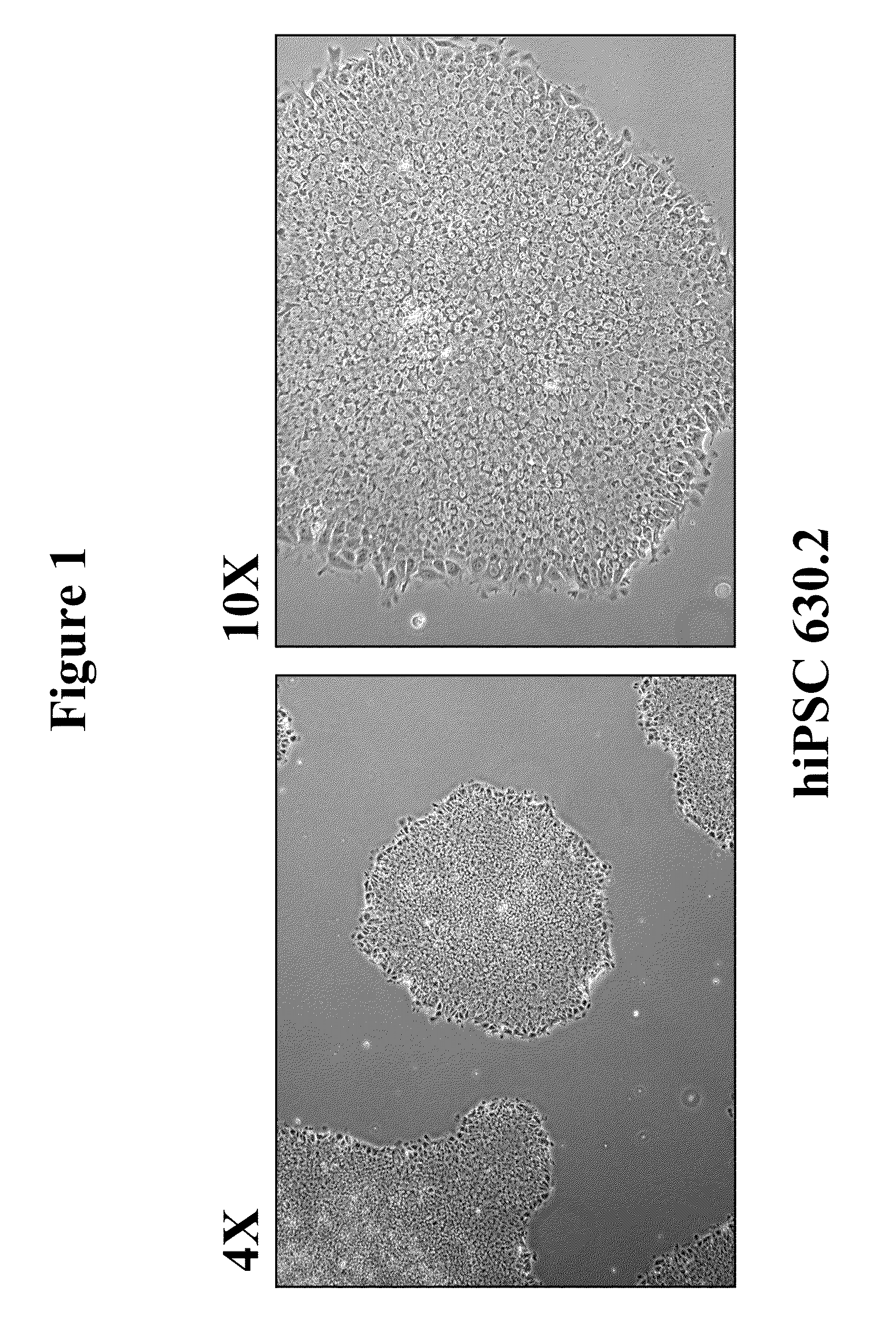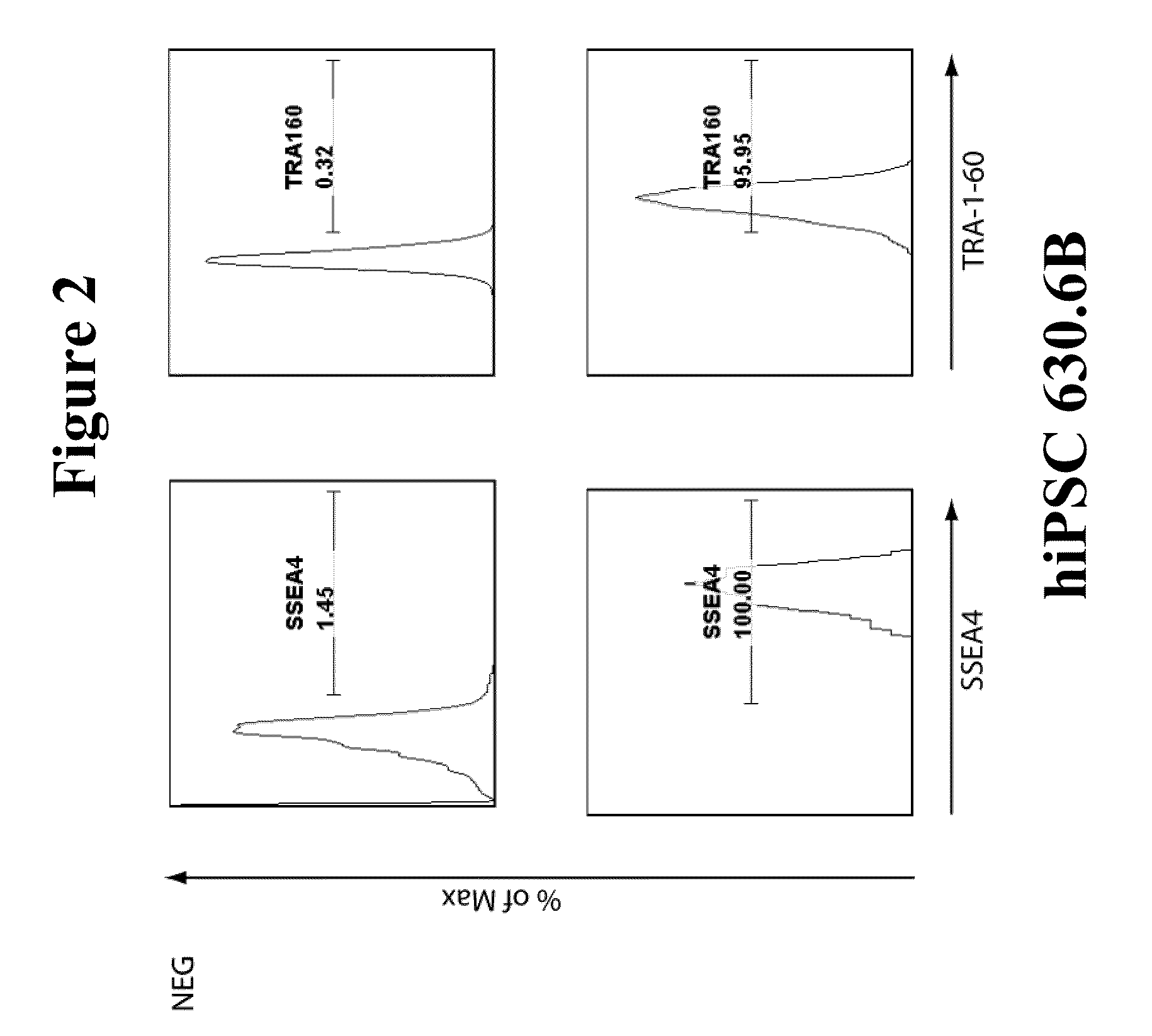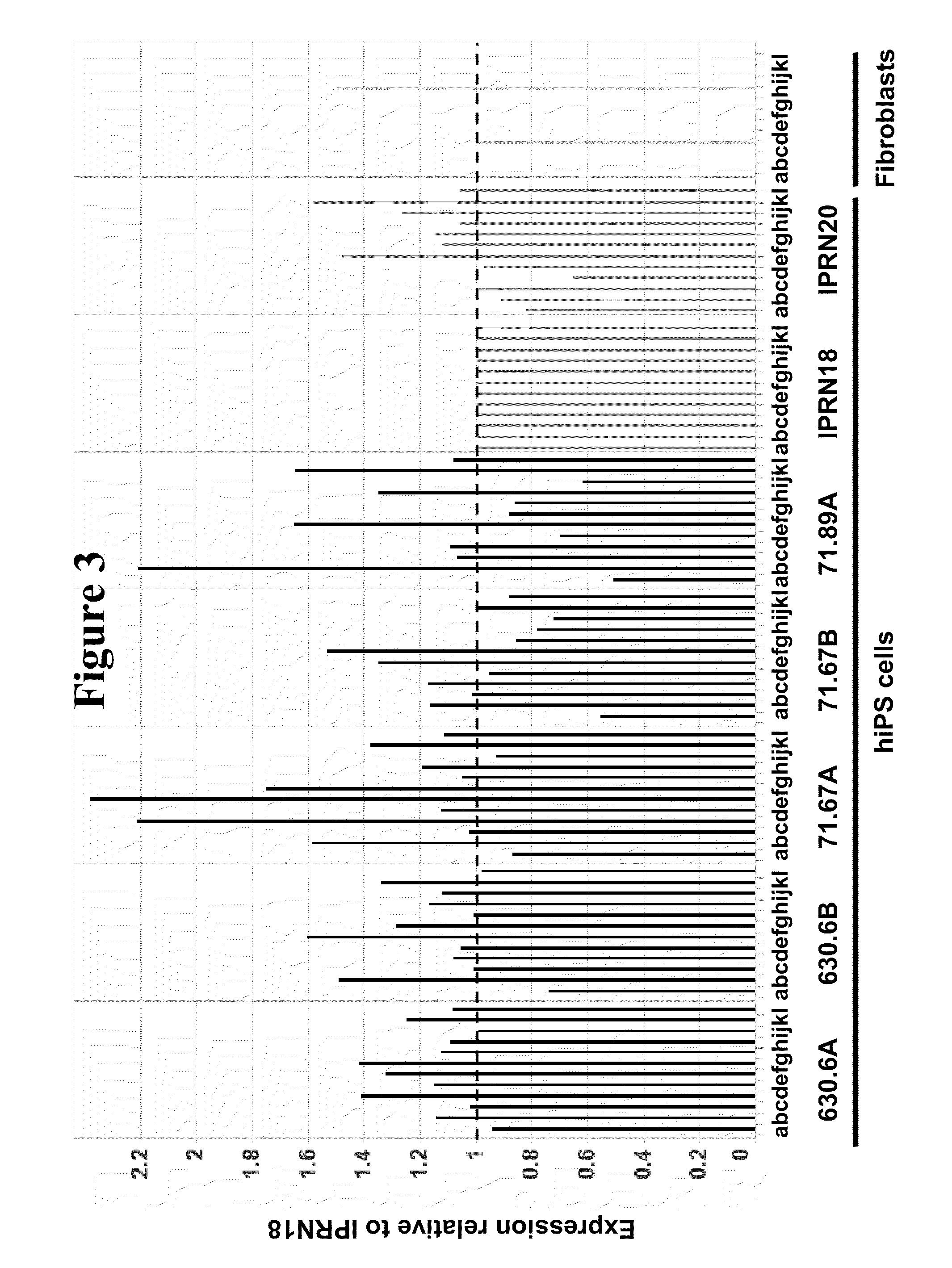Integration-free human induced pluripotent stem cells from blood
- Summary
- Abstract
- Description
- Claims
- Application Information
AI Technical Summary
Benefits of technology
Problems solved by technology
Method used
Image
Examples
example 1
Generation of Integration-Free hiPS Cells by Transient Transfection of Nucleated Blood Cells with Reprogramming Factors Oct4, Sox2, Kl4, and c-Myc
[0080]The original objective of this work was to evaluate the ability of the piggyBac plasmid / transposon reprogramming system (as described in Woltjen et al (2009), Nature, 458(7239) 766-770) to reprogram PBMCs. This system, as reported in Woltejen et al (2009), utilizes piggyBac transposase to initially drive genomic integration of a transposon expression vector encoding four reprogramming factors (Klf4, c-Myc, Oct4, and Sox2) and a separate transposon vector encoding the reverse-tetracycline transactivator (rtTA) to drive expression in trans of the four reprogramming factors to induce reprogramming of somatic cells into iPS cells. Subsequently, the same transposase is transiently expressed to remove the integrated transposon(s) from the genome to obtain integration-free hiPS cells, although to date this system has only been demonstrated ...
PUM
| Property | Measurement | Unit |
|---|---|---|
| Time | aaaaa | aaaaa |
Abstract
Description
Claims
Application Information
 Login to View More
Login to View More - R&D
- Intellectual Property
- Life Sciences
- Materials
- Tech Scout
- Unparalleled Data Quality
- Higher Quality Content
- 60% Fewer Hallucinations
Browse by: Latest US Patents, China's latest patents, Technical Efficacy Thesaurus, Application Domain, Technology Topic, Popular Technical Reports.
© 2025 PatSnap. All rights reserved.Legal|Privacy policy|Modern Slavery Act Transparency Statement|Sitemap|About US| Contact US: help@patsnap.com



